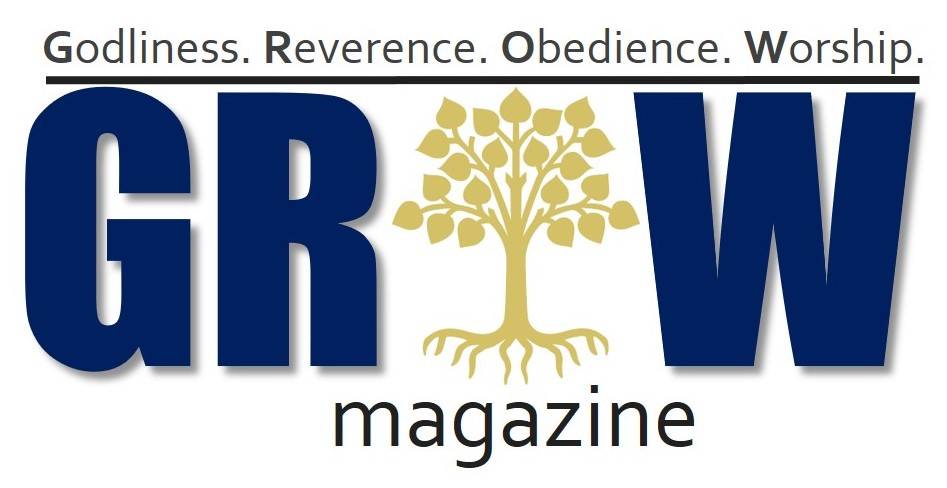Fasting
WORSHIP/DEVOTIONAL ARTICLE | Marshall McDaniel | Wentzville, Missouri
 Fasting is an uncommon activity in our modern, Western culture. People tend to associate it with cultic and Eastern religions, ancient mysticism, medieval monasticism, or non-traditional health management. Obviously, there are misconceptions about fasting. Yet the Bible portrays fasting as an acceptable and spiritually beneficial practice. Biblical fasting is often linked with prayer. In this study, we will survey the nature and application of fasting in the Bible and its relevance today.
Fasting is an uncommon activity in our modern, Western culture. People tend to associate it with cultic and Eastern religions, ancient mysticism, medieval monasticism, or non-traditional health management. Obviously, there are misconceptions about fasting. Yet the Bible portrays fasting as an acceptable and spiritually beneficial practice. Biblical fasting is often linked with prayer. In this study, we will survey the nature and application of fasting in the Bible and its relevance today.
In the Old Testament, several Hebrew and Aramaic words are related to fasting. These include the Hebrew verb tsum, meaning “to fast” (that is, “to abstain from food”), and the noun tsom, meaning “fast(ing).” Another Hebrew word nazar (verb) is sometimes translated as “to abstain” but fundamentally means “to consecrate”; it is the root of the word Nazarite; interestingly, Nazarites were to abstain from various kinds of drinks (see Numbers 6:2-3). The Hebrew words taanith (noun) and anah (verb) are also indirectly linked to fasting; these words mean “humiliation” and “to humble oneself” and, by implication from certain contexts, “by means of fasting.” Lastly, the Aramaic word tevath is translated “fasting” and seems to bear the idea of “twisting in hunger.”
In the New Testament, the Greek words are nearly identical in meaning to the Hebrew and Aramaic. The Greek verb nesteuo means “to fast”; there seems to be more of a religious connotation attached to this word than to its Hebrew counterparts. The root of this verb is the Greek adjective nestis, which means “hungry.” Finally, the Greek noun nesteia means “fast” and describes voluntary or forced abstinence from food. Regardless of the word that is used, fasting is simply abstaining from food, though typically it is done for spiritual reasons (more on the reasons for fasting below).
Examples of fasting abound in the Scriptures. In the Old Testament, Moses fasted for a period of forty days and nights while he received the Law (Exodus 34:28). The Israelites fasted during times of war (Judges 20:26; 1 Samuel 7:6). They also fasted for seven days following the death of King Saul (1 Samuel 31:13). David fasted and prayed for his sick child (2 Samuel 12:16; see Psalm 35:13). Jehoshaphat fasted when threatened by Edom (2 Chronicles 20:3). Ezra fasted before a dangerous journey, asking God for safe travels (Ezra 8:21). Nehemiah fasted and prayed after he heard that Jerusalem was lying in ruins (Nehemiah 1:4). Esther and the Jews fasted after they learned of their imminent annihilation (Esther 4:3, 16). Joel called for a communal fast during a pestilence (Joel 1:14; 2:15). The Ninevites held a city-wide fast in response to the preaching of Jonah (Jonah 3:5-9).
In the New Testament, Anna fasted regularly (Luke 2:37). Jesus began His ministry with a forty-day fast (Matthew 4:2). The disciples of John fasted often, and it is implied that the disciples of Jesus would do the same when it was appropriate (Matthew 9:14-15; see 6:16-18). Cornelius fasted and prayed to God, and an angel was sent to him in response (Acts 10:30). As the early Christians ministered to the Lord and made important decisions, they also fasted (Acts 13:2; 14:23). Fasting was obviously a common and valued practice for God’s people.
Yet the fasts in the Bible are not identical. Sometimes fasting was natural because food was unavailable or because individuals were grief-stricken (see 2 Corinthians 6:5; 11:27; 2 Samuel 1:11-12). The extent and duration of fasts were typically determined by the individual (or the group) and were contingent on the immediate circumstances.
Some fasts were partial, removing only certain items from the diet (see Daniel 10:2-3; 1:12); normal fasts, on the other hand, abstained from all food but allowed the drinking of water (see Luke 4:2, 4); the extreme total fast, however, refrained from food and drink altogether (see Acts 9:9; Esther 4:15-16). Moreover, the fasts of the Bible varied in length: one day (see Judges 20:26), three days (see Esther 4:16), seven days (see 1 Samuel 31:13), and even forty days (see Exodus 34:28). The particulars of fasting were rarely mandated in Scripture.
Fasting is clearly not an isolated or rare activity in the Bible. Fasting is not specifically commanded in the New Testament, but it was important to first-century believers. So why does it seem that fasting is frequently ignored by modern Christians? Perhaps it is because we simply do not recognize its value (or because we have not spent time learning about it).
What, then, are some of the (spiritual) benefits of fasting?
First and foremost, fasting intensifies our prayers. Let’s consider the example of Daniel. While seeking an explanation of Jeremiah’s prophecy, Daniel wrote, “So I gave my attention to the Lord God to seek Him by prayers and supplications, with fasting, sackcloth and ashes” (Daniel 9:3). Daniel wanted God to know that he was serious about approaching Him, so he fasted. Similar stories include Ahab (1 Kings 21:27), Ezra (Ezra 8:23), and Paul (Acts 9:9). In the Bible, desperate times called for desperate measures, and fasting was sometimes deemed necessary. Moreover, fasting adds fervency to prayer (see James 5:16). It humbles us (see Ezra 8:21; Psalm 35:13) and teaches us self-control (see 1 Corinthians 7:5). Fasting demonstrates our reliance on the Lord (see 2 Chronicles 20:3). It meets His approval (see Matthew 6:18). There are indeed great rewards associated with fasting, especially when it is coupled with prayer.
Can we fast today? Yes, we can! Should we? That is an individual decision that requires awareness of oneself and his or her circumstances. We need to identify our motivations and determine how effective fasting will be for us personally. If we simply want to try something new and different, we may be disappointed. But if we realize the spiritual benefits associated with fasting, it may prove profitable. Regardless, we must only fast to the glory of God (see Zechariah 7:5; Matthew 6:17-18). When we do so, God will reward us.
__________
NOTE – this article was originally written for the book, “Devoted to Prayer,” published by One Stone. It has been printed here with permission of both the author and publisher.
19.10.01 | GROW magazine

